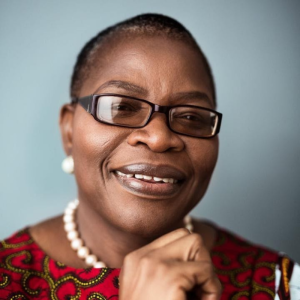Some Nigerians have expressed outrage after the country’s national anthem was changed with little consultation.

President Bola Tinubu on Wednesday signed into law the bill to revert to Nigeria’s old national anthem which was dropped by a military government in 1978.
The newly re-adopted anthem, which begins “Nigeria, We Hail Thee,” was written by Lillian Jean Williams in 1959 and composed by Frances Berda.
Speaking on his first anniversary in office, President Tinubu said the anthem symbolised Nigeria’s diversity.
But many have questioned his priorities amid the cost-of-living crisis.
Reacting online, some Nigerians said the country had more pressing problems such as insecurity, rising inflation and a foreign exchange crisis.
X user @Gospel_rxx posted: “A new national anthem is the priority for Tinubu & Co at a time like this, When our people can’t eat, insecurity is rife & life is hell? What a sordid joke!!. Lets see how they implement it…”
Another X user Fola Folayan said it was shameful that parliament had rushed through the bill.
“Changing the Nigerian national anthem written by a Nigerian, to the song written by colonizers is a stupid decision and it’s shameful that nobody in the National Assembly thought to stand against it.”

Former Education Minister Oby Ezekwesili posted on X that she would never sing the new-old anthem.
“Let it be known to all and sundry that I, Obiageli “Oby” Ezekwesili shall whenever asked to sing the Nigerian National Anthem [will] sing:”
She then posted the words of “Arise O Compatriots” – the anthem which has been used for the past 46 years.
Former presidential aide Bashir Ahmad had an interesting take as Nigerians continue to debate the issue on social media.
“After the change of our national anthem, some people are now calling for the name Nigeria and the national flag to be changed as well. What do you think? Should we keep the name Nigeria?”
But Tahir Mongunu, chairman of the parliamentary committee which pushed the bill through, dismissed the widespread criticism, saying it was “apt, timely and important”.
“It will undoubtedly inspire a zeal for patriotism and cooperation. It will promote cultural heritage. Changing the national anthem will chart a path to greater unity,” Tahir said.
And Kano resident Habu Shamsu agrees, telling the BBC: “I think it more encompassing and I like the way it flows.”
 Gistfox Your News Window To The World
Gistfox Your News Window To The World 




